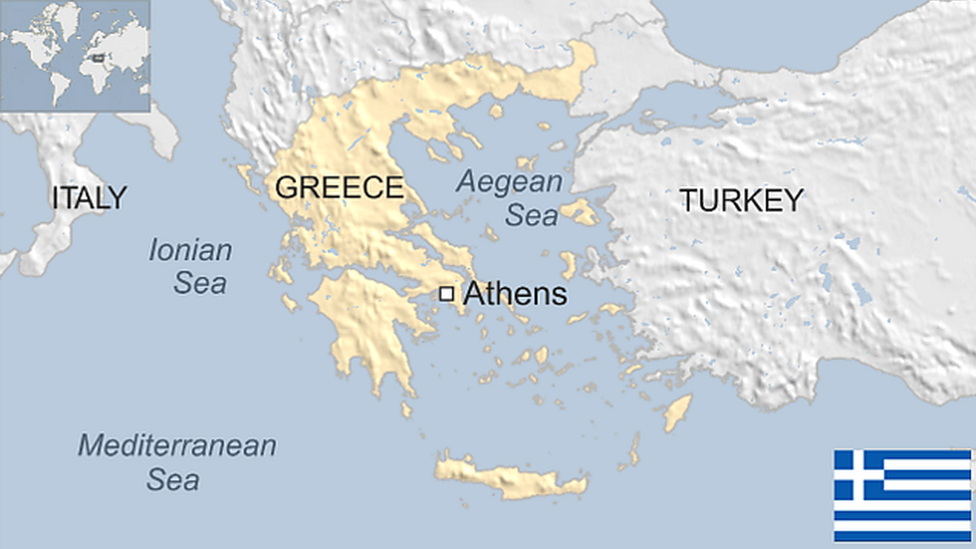Albania country profile
- Published
This page is no longer being updated. It was last updated on 28 June 2023
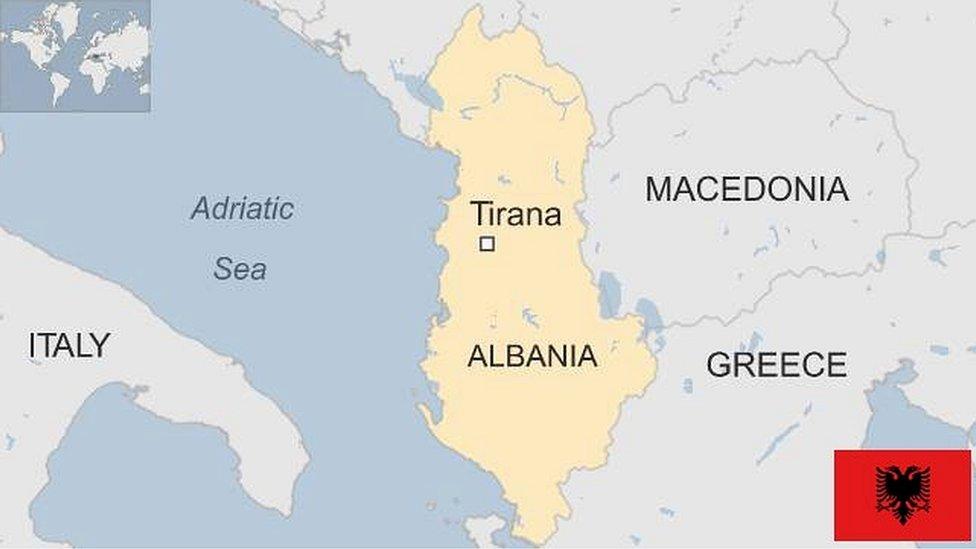
Albania is a small, mountainous country in the Balkan peninsula, with a long Adriatic and Ionian coastline.
Along with neighbouring and mainly Albanian-inhabited Kosovo, it has a Muslim majority - a legacy of its centuries of Ottoman rule. About 17% of the population are Christians, divided mainly between the Orthodox and smaller Catholic denominations.
After World War Two, Albania became a Stalinist state under Enver Hoxha, and remained staunchly isolationist until its transition to democracy after 1990.
The 1992 elections ended 47 years of communist rule, but the latter half of the decade saw a quick turnover of presidents and prime ministers.
Many Albanians left the country in search of work; the money they send home remains an important source of revenue.
Read more country profiles , external- Profiles by BBC Monitoring, external
REPUBLIC OF ALBANIA: FACTS
Capital: Tirana
Area: 28,748 sq km
Major language: Albanian
Population: 2.7 million
Life expectancy: 74 years (men) 80 years (women)
LEADERS
President: Bajram Begaj
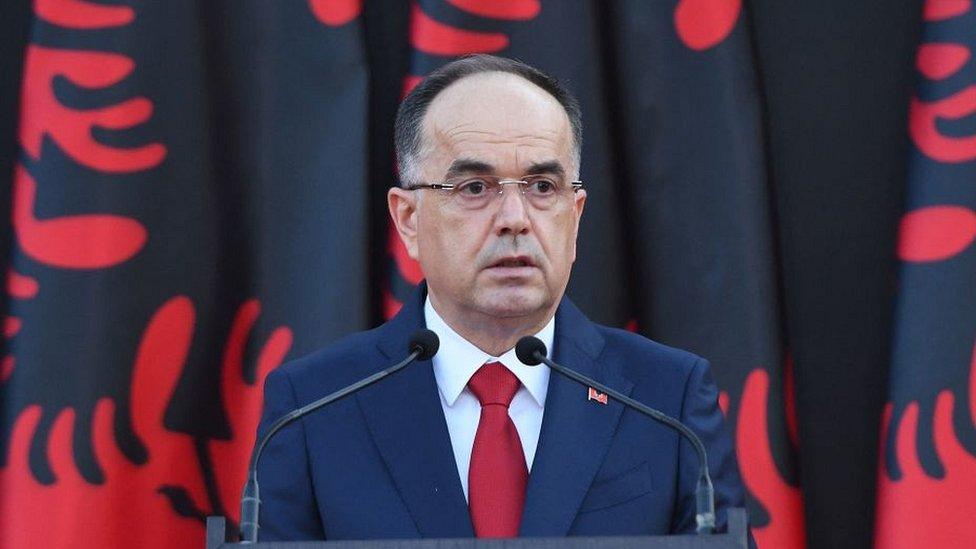
Bajram Begaj is a former army general who was elected as president by parliament in June 2022April 2017, having previously been chief of the general staff of the Albanian armed forces.
Prime minister: Edi Rama
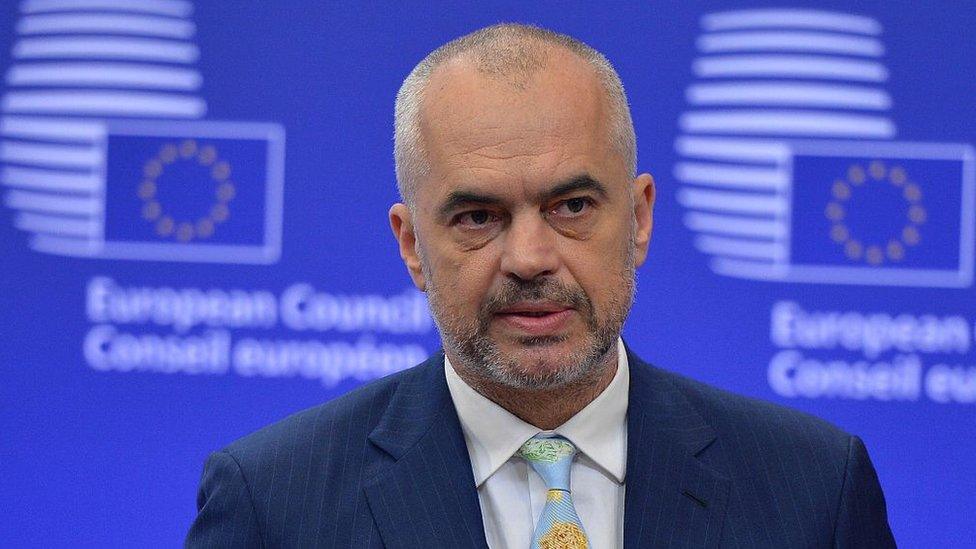
Edi Rama became prime minister in September 2013, three months after elections in which his Socialist Party won a landslide victory that brought to an end eight years of conservative rule.
His party won a new mandate in elections in June 2017 and in April 2021.
Rama has pursued a neo-liberal economic policy, in terms of reducing public spending and promotes public-private partnerships.
He has argued that the European Union needs to accelerate the integration process of the Western Balkans, in order to prevent political fractures and violence that broke apart the former Yugoslavia in the 1990s.
Rama has also denounced Russian influence as destabilising in the region.
MEDIA
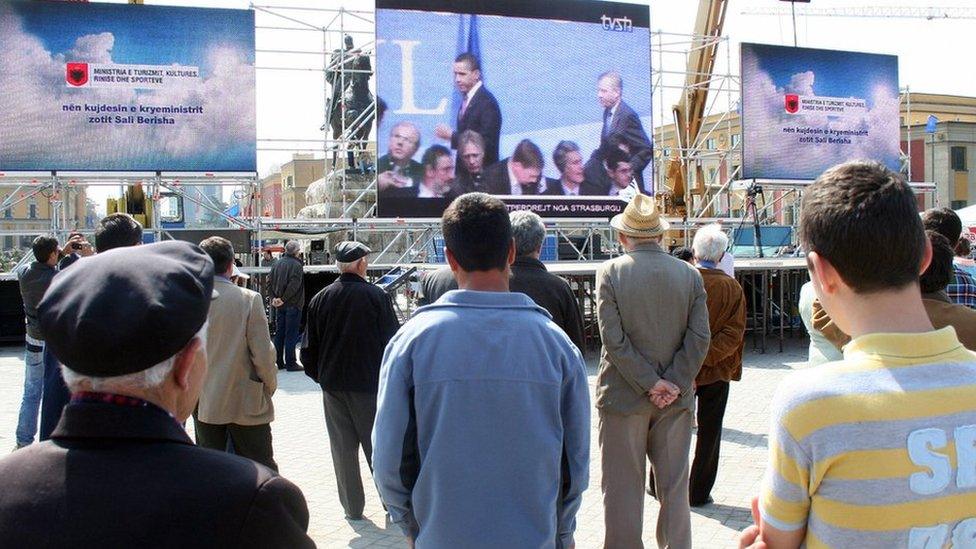
Albanians watching TV in Tirana's main square
TV is the most popular medium, but the internet is beginning to close the gap.
As well as TV networks run by public RTSH, there are three licensed national private networks and scores of local stations. Two companies offer digital terrestrial and satellite packages.
The media are generally free but press freedom groups say that self-censorship can arise from media owners' interests.
Read full media profile
TIMELINE
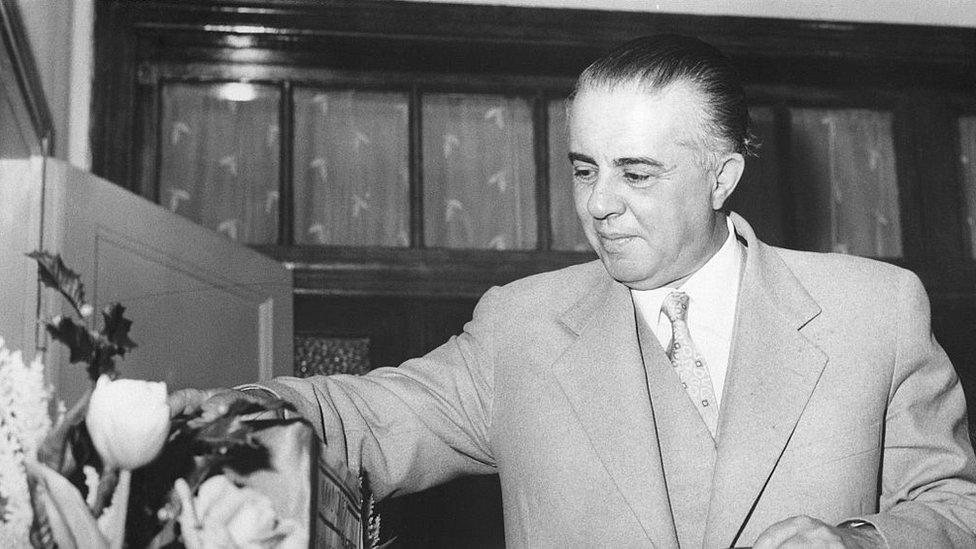
Communist leader Enver Hoxha ruled Albania with an iron fist between 1944 and 1985
Some key dates in Albania's history:
7th Century BC - Greek colonies established along the coast.
167BC - Area conquered by Rome. Later become part of the Roman Empire.
395AD - Roman Empire splits in to West and East, and Albania is incorporated into the Eastern Roman Empire - subsequently the Byzantine Empire.
c.1190-1257 - Principality of Arbanon. First recorded Albanian state.
1385 - Ottoman forces defeat local rulers at the Battle of Savra. Most local leaders become Ottoman vassals.
1415-1431 - Albania is gradually incorporated into the Ottoman Empire.
1444-68 - After Ottoman defeat in the Battle of Nis, during the Crusade of Varna, Gjergj Kastrioti Skanderbeg unites Albania rulers in the League of Lezhë and leads a 25-year struggle against Turkish rule.
18th-19th Centuries - Albanian Renaissance: flourishing of Albanian culture and society, coupled with rising nationalism and moves for independence.
1912 - Albania declares independence from the Ottoman Empire.
1925-28 - Albanian Republic
1928 - Albania becomes a monarchy under Zog I.
1939 - Shortly before the start of World War Two, Benito Mussolini's Italy invades and incorporates Albania into its fascist empire. King Zog flees to Greece.
1940 - Italian army attacks Greece through Albania.
1941 - Enver Hoxha becomes head of new Albanian Communist Party.
1943 - German forces invade and occupy Albania following Italian surrender.
1944 - Germans withdraw. Communist forces defeat nationalist rivals and Enver Hoxha is installed as Albania's new leader.
1946 - Purges of non-communists from government positions.
1948 - Albania breaks ties with Yugoslavia. Soviet Union begins economic aid to Albania.
1950-52 - Britain and US back landings by right-wing guerrillas. However Kim Philby, a Soviet double agent working for British intelligence leaks details of the plan to Moscow, and the security breach claims the lives of about 300 infiltrators.
1955 - Albania becomes a founding member of the Warsaw Pact.
1961 - Albania allies itself with China, after Soviet Union breaks diplomatic relations over ideological rift.
1967 - Violent clampdown on religious activity. Albania declared the world's first atheist state.
1968 - Albania withdraws from Warsaw Pact over Soviet-led invasion of Czechoslovakia.
1978 - China ends economic and military aid to Albania after relations become strained by China's reconciliation with the US.
1985 - After ruling for nearly half a century, Stalinist dictator Enver Hoxha dies. He is replaced by Ramiz Alia.
1989 - Communist rule in Eastern Europe collapses.
1990 - Independent political parties formed. Albanians granted right to travel abroad. Thousands try to flee through Western embassies.
Thousands more seize ships and sail illegally to Italy.
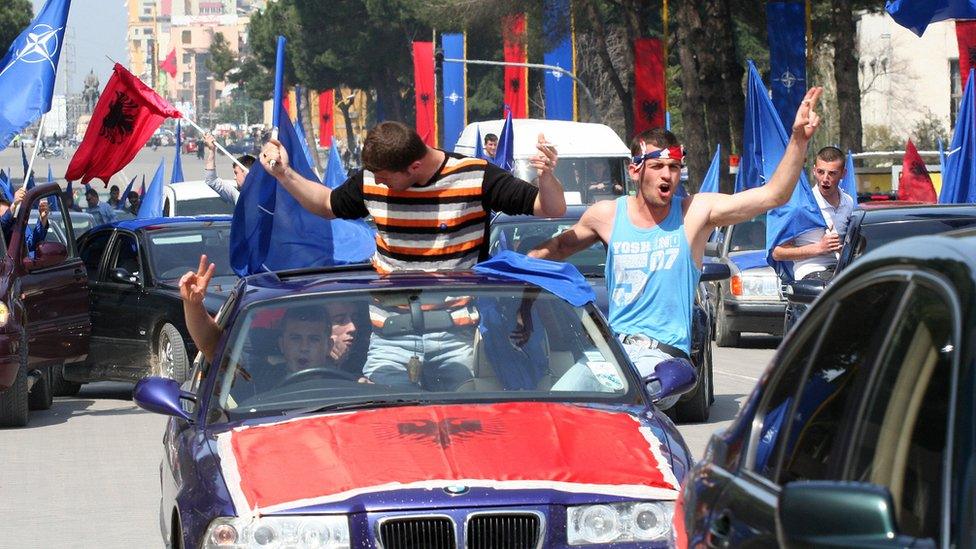
Albanians celebrate joining Nato in 2009
1991 - In multiparty elections, the Communist Party and allies win 169 of the 250 seats, the newly-formed Democratic Party takes 75.
1992 - Democratic Party wins elections. Party leader Sali Berisha becomes first elected president.
1999 - Nato air strikes against Yugoslav military targets. In Kosovo thousands flee attacks by Serb forces. Mass refugee exodus into Albania.
2009 - Albania officially joins Nato and formally applies for membership of the European Union.
2012 - The remains of former King Zog are repatriated to Albania from France, where he died in 1961.
2014 - The European Commission recommends Albania as a candidate for European Union membership.
2019 - Albania is hit by the strongest earthquake to affect the country in more than 40 years, with 51 people killed and about 3,000 injured.
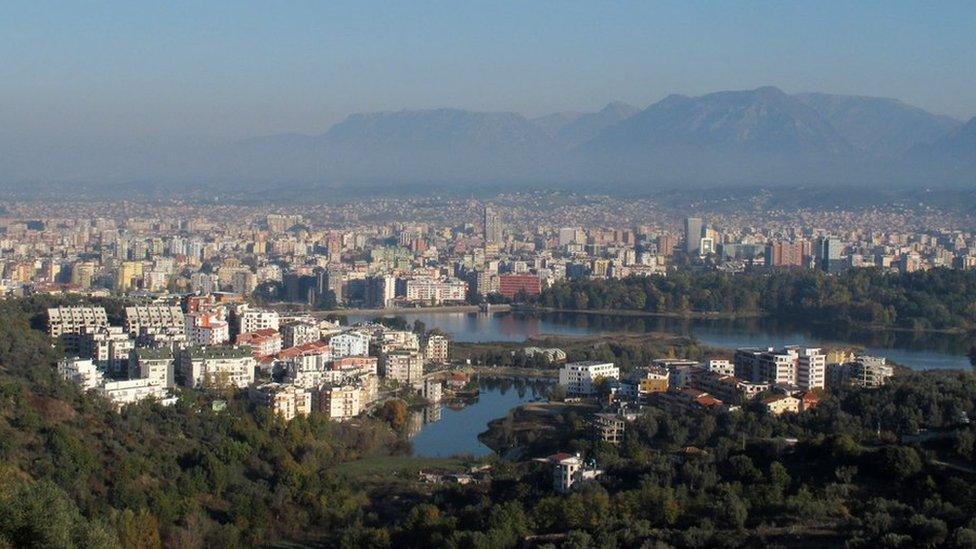
A view of the capital Tirana
- Published4 October 2023
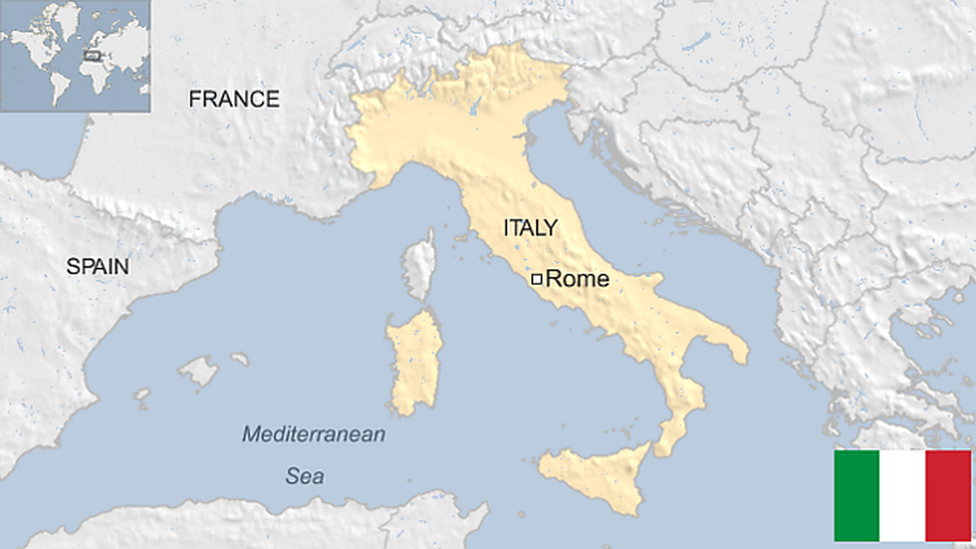
- Published22 May 2023
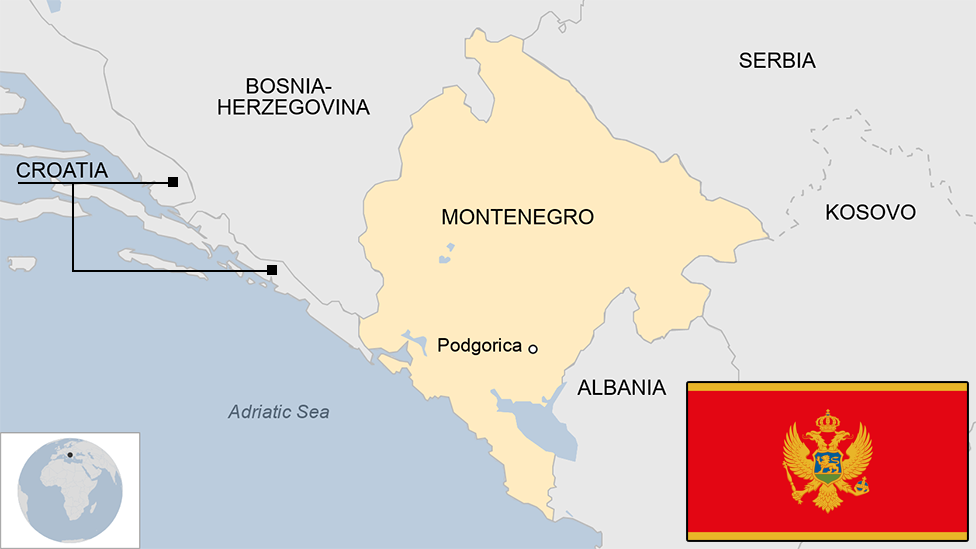
- Published7 February
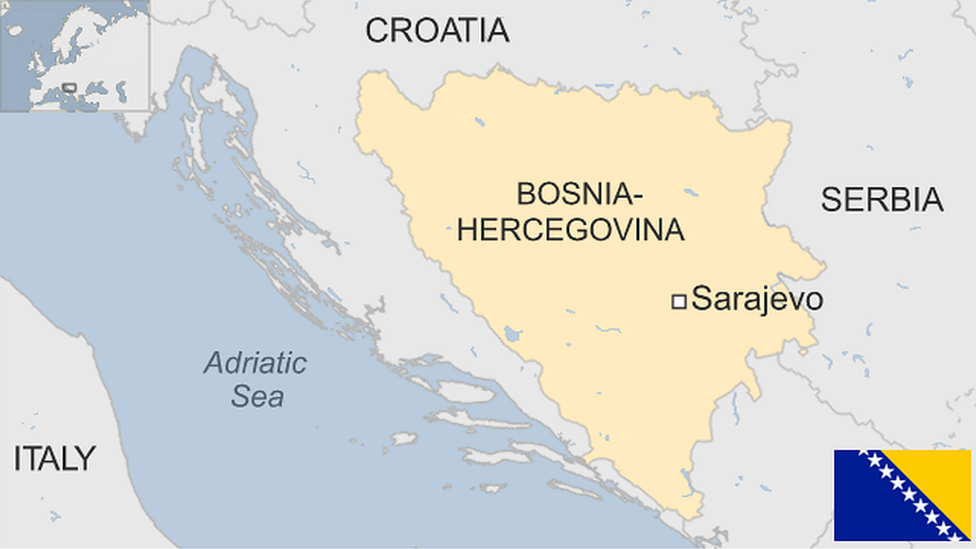
- Published28 January
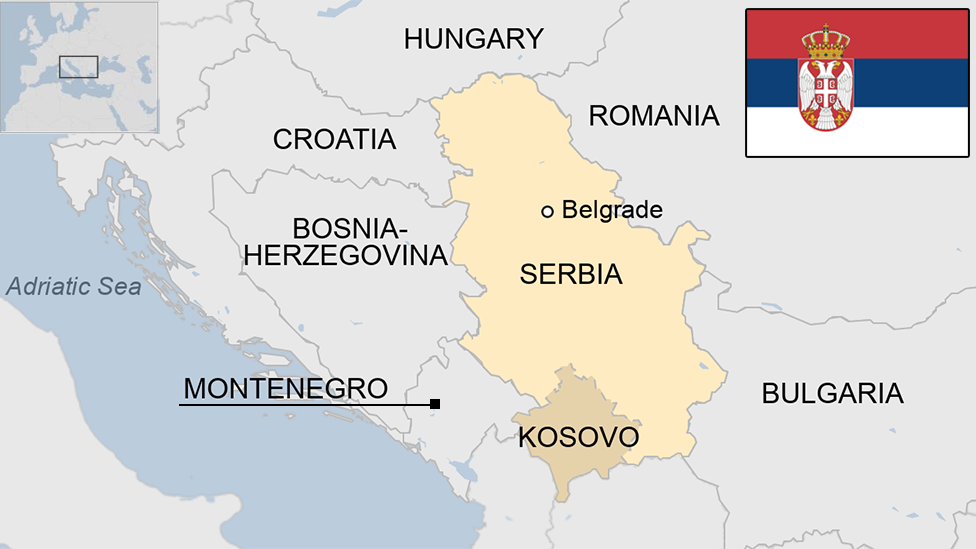
- Published28 June 2023
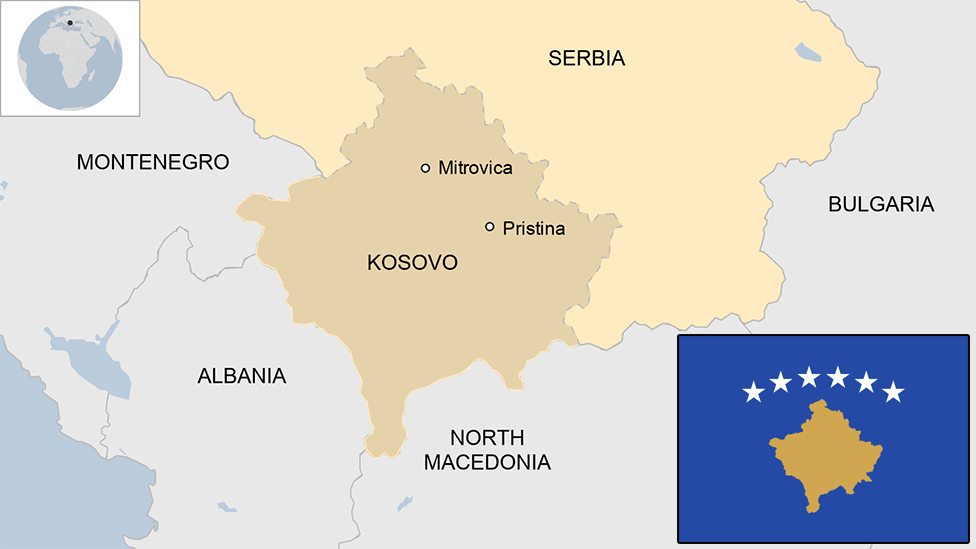
- Published10 June 2024
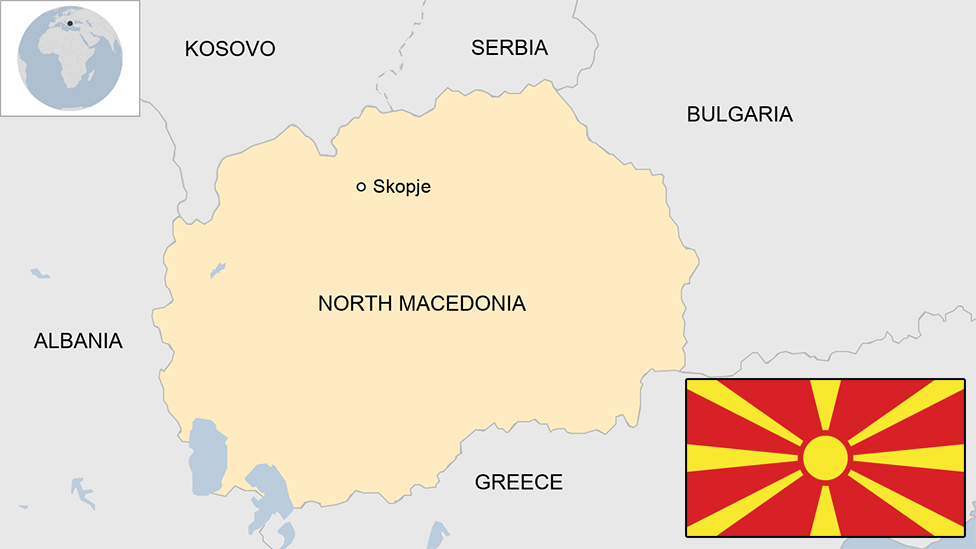
- Published28 June 2023
